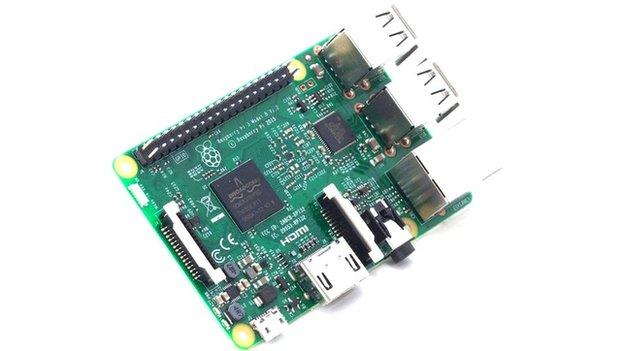Amazon's Raspberry Pi guide lets coders use Alexa
- Published
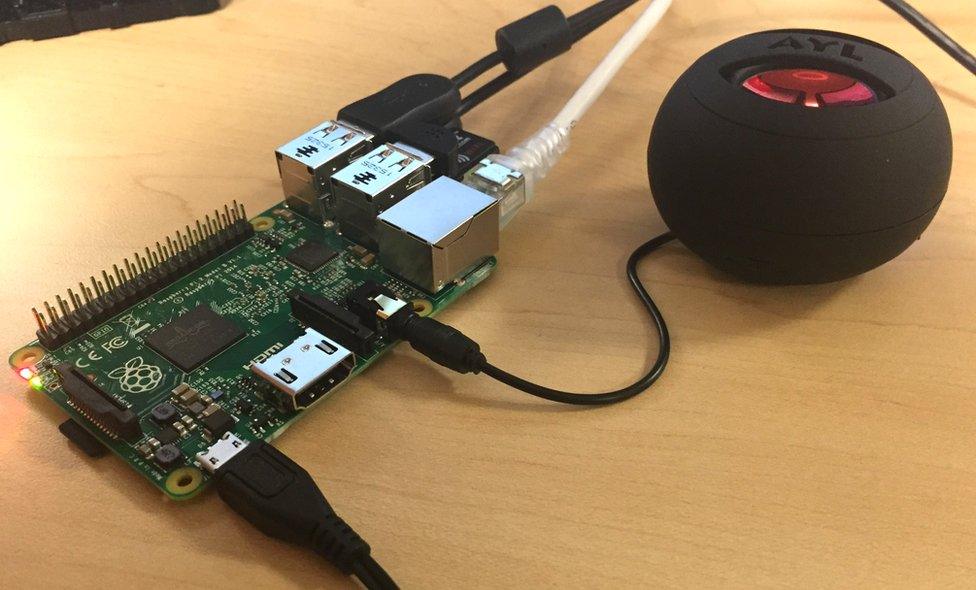
Hobbyists will need access to a Raspberry Pi computer and an add-on microphone
Amazon has published an online guide explaining how to access its virtual assistant Alexa via a Raspberry Pi.
The technique presents a lower-cost alternative to buying one of its Echo devices - which are not yet available outside of the US - and an incentive to gain computer skills.
The walkthrough, external includes access to the necessary app data and certificates in order to link the budget computer up to the tech giant's servers.
Coding experts welcomed the initiative.
The Raspberry Pi pocket-sized computer was designed by a British charity to encourage children and others to learn how to write computer programs. More than eight million units have been sold or given away.
Amazon says that users require at least the second-generation model, released in February 2015, as well as:
a plug-in USB microphone
a MicroSD card
an ethernet cable
a wi-fi wireless adapter
a mouse, keyboard and screen
Most Raspberry Pi owners would already own most if not all of these add-ons.
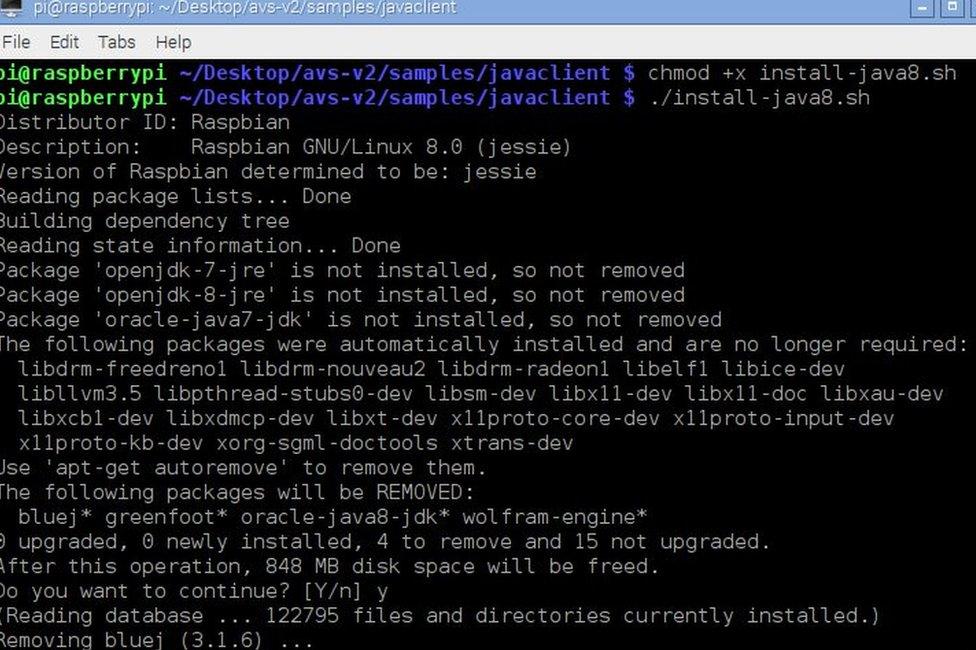
The guide requires the user to install the Java Development Kit and the Maven automation tool
The coding involved is limited to typing in sets of commands, but the guide explains the purpose of each one.
Users also need to register for an Amazon Developer Account, which they can get for free.
Rik Cross, from the UK's after-school Code Club initiative, described it as an "interesting project", but added that parents should be aware of the privacy implications involved.
"It's important to remember that this data could be captured and stored by Amazon, in the same way that any website can store the data provided," he told the BBC.
"However, with the Raspberry Pi version, communication is via a button press, and so this serves as a much more 'active' way of interacting with the service, rather than a service that 'passively' listens to all your nearby conversations, as is the case with the Echo."
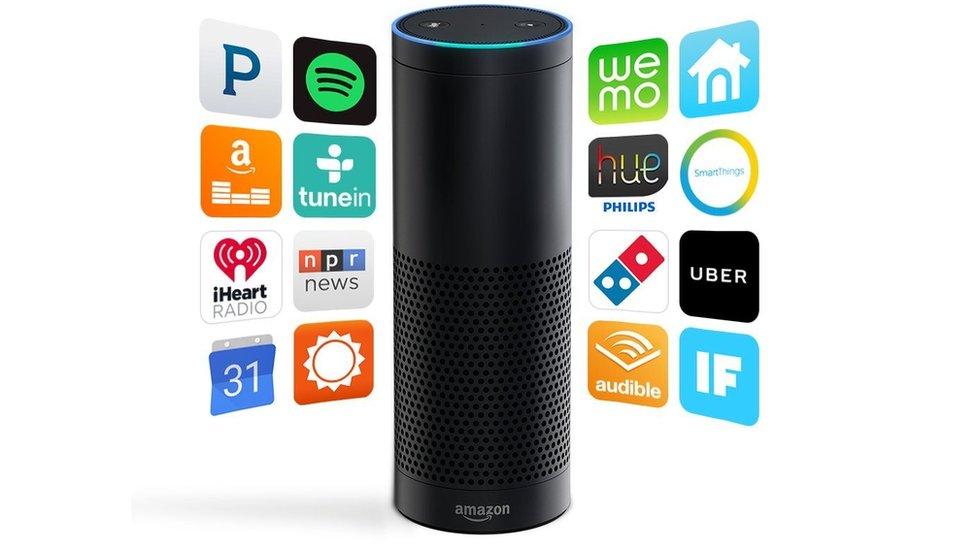
The Amazon Echo allows users to access a range of online services by speaking commands
Alexa advances
Amazon's Alexa service can be used to stream music, provide weather and news updates, create lists and answer general knowledge questions.
The online retailer was relatively late to the field - following Apple's Siri, Microsoft's Cortana and Google's Now services.
But the firm has sought to make Alexa popular by allowing third-party developers to offer the facility. An internet connection is required because Amazon's own data centres do the processing required for the voice recognition and other artificial intelligence tasks involved.
France's Invoxia became the first to take up the offer last year with Triby, an Alexa-powered fridge speaker.
WATCH: The Triby speaker adds Amazon's Alexa assistant to fridges
In January, a New York-based developer, external released a tutorial of his own explaining how a Raspberry Pi could be used to create an Echo-like device.
But Amazon's guide, which has been published on the code-sharing site Github, is likely to drive interest in the idea.
"Anything that helps people to make and create with the technology that was otherwise closed, mysterious and inaccessible seems like a good thing to me," commented Bethany Koby, co-founder of Technology Will Save Us - an education-focused start-up currently involved with the launch of another mini-computer, the Micro Bit.
"What it doesn't do is create a way for a broader 'untechy' audiences to partake - but that isn't really its intention."
Those not attracted by the idea can download an Alexa app for devices powered by Google's Android, external or Apple's iOS, external operating systems - however, the apps are restricted to US-based users at this time.
- Published22 March 2016
- Published22 March 2016
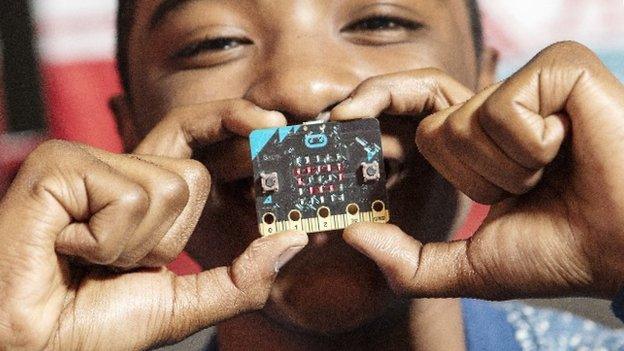
- Published29 February 2016
